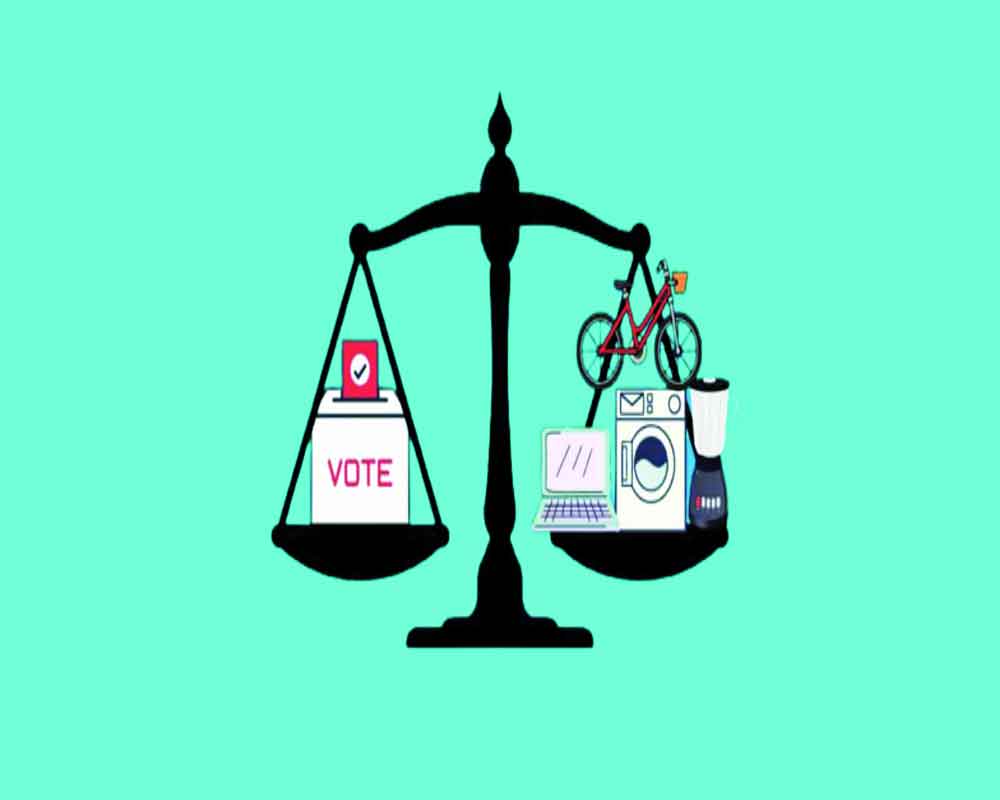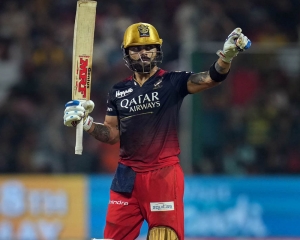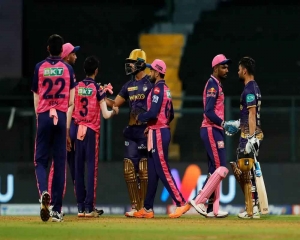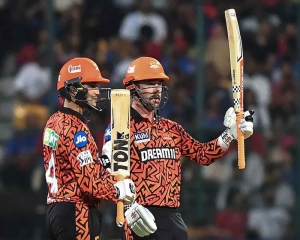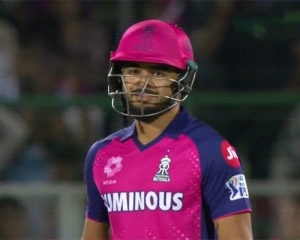Freebies are the easiest way to woo the voters but they come at a huge cost to the exchequer and are anathema to democracy
Indian politics is getting deeply vitiated by freebie policies. It is slowly but surely becoming hostage to a nefarious practice that trades doles for votes. In the largest democracy in the world, such practice has been growing and thriving unchecked over two decades and this fact speaks volumes about the hollowness of our professedly democratic polity.
Democracy is a system of governance that is people-centric. Right?
In a democracy, therefore, peoples’ sensitivities and sensibilities should be recognized and respected. People’s rights as citizens should be protected and the system should have a robust mechanism for ensuring the protection of citizens’ rights. For this, there needs to be in place a constitutional framework that enables the establishment and smooth operation of institutions—economic, administrative, and legal that will ensure fairness, justice, and welfare of all. India has none of these.
India—a sham democracy? Yes, it is.
Democracy ensures that the voice and choice of every citizen are considered in government-making. Democracy is based on the premise of equality of all humans and equal treatment of all. Democracy means justice for all and a legal system that dispenses justice, without delay, derailment, or denial. Democracy provides equal opportunities to all for self-growth and development. Democracy as a system is in sync with the pulse of the people which, in turn, derives its energy from the social milieu and peoples’ cultural moorings. Democracy as a type of government ensures that the entity called a nation grows naturally and organically where each citizen contributes and each one is equitably benefitted.
None of the above features exists in the extant governance system of India. Then, shall we be deceiving ourselves by calling India a sham democracy and, in more crude terms, a banana republic? A state whose polity allows and encourages the policy of appeasement and undermines justice?
In this country, without changing the basic constitutional framework of archaic British time laws and regulations, political institutions and practitioners are moving in small circles without breaking the barriers that separate them from people and their problems. Politicians invent novel ideas and schemes like freebies to lure gullible people into voting for them and get the electoral arithmetic run in their favour. The politics of appeasement of specific classes and community members go on unabashedly from the manifesto stage till the time of the next elections. Free electricity, water, medical services, and other facilities work like bribes to garner votes. The bigger, developmental works that provide impetus to economic activity suffer due to a lack of funds. Because there is no free lunch, the cost burden falls on the whole of society. This is the best way to impede economic growth and the most regressive way for the state under governance. The cases of Latin American countries—Brazil and Venezuela serve as illustrative examples of how to destroy economies through state subsidies. Reckless, indiscriminate large-scale subsidies spell the economic doom of states as they induce people into lethargy and profligacy.
The AAP in India is following a well-crafted subsidy model of governance that is overly socialistic and nakedly anti-developmental. The recent revelations of the warped state liquor policy that, by cutting down heavily on VAT, passed on the larger benefits to vendors rather than the government or consumers, came as a rude shock to those voters who regarded AAP as a political outfit dedicated to probity. The subsidies given on electricity to a certain section of consumers in Delhi have been offset by inflated bills for the remaining sections. The much-touted Mohalla clinics are also a small-scale socialistic scheme that serves citizens a freebie at the expense of all taxpayers. The rough ruling on hundreds of private schools to prevent fee escalation threw those schools into commercial doldrums.
The free lunch or freebie model has ruined the economies of countries in the past. What we need to urgently do is to take a hard, exhaustive look at our democratic polity and overhaul completely our constitution and political system derived therefrom. India is the original home and progenitor of democracy and we must devise our very own democratic system of governance based on our ancient, eternal scriptures –Vedas and Manusmriti that contain time-tested and effective models of a democratic polity. The scriptures contain models of perfect democratic governance structures that encourage probity rather than institutionalize corruption. Opening the pages of recent history will also reveal that the first draft of our constitution prepared by Dr BR Ambedkar had incorporated many such sublime scriptural tenets in It but the good work was undone by the machinations of the higher political elite of that time.
The above-suggested modifications in our constitution will be in tune with our cultural milieu as an ancient nation and will become the instrument to take India into a fast development trajectory to make it the leading geopolitical power, a position of pride which it has held for millennia in the past and which is really in the larger interest of the entire global community.
(The writer is a Management Consultant based in New Delhi. The views expressed are personal)













